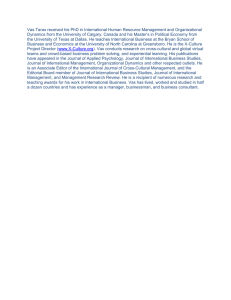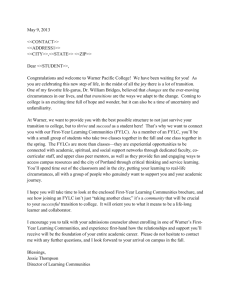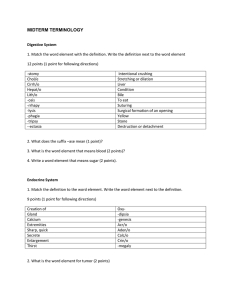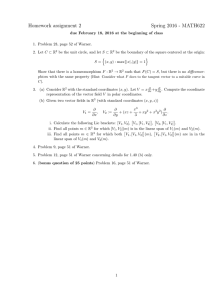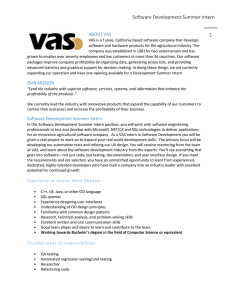Long Term Care and Senior Housing Under Washington's Vulnerable Adult Statute
advertisement
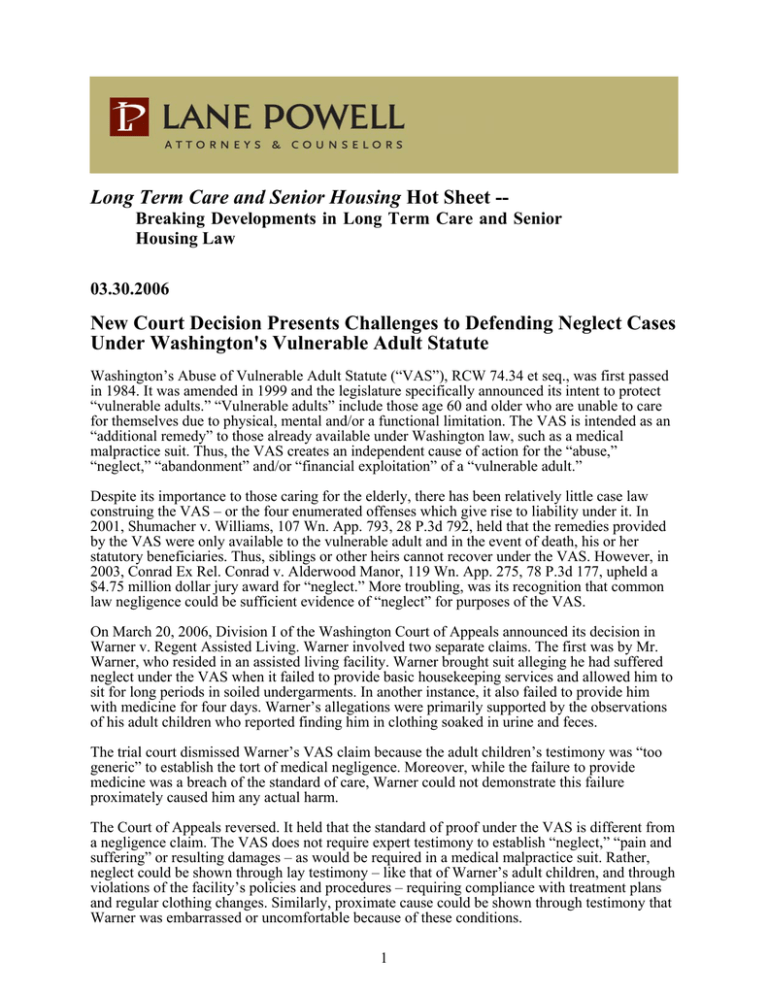
Long Term Care and Senior Housing Hot Sheet -Breaking Developments in Long Term Care and Senior Housing Law 03.30.2006 New Court Decision Presents Challenges to Defending Neglect Cases Under Washington's Vulnerable Adult Statute Washington’s Abuse of Vulnerable Adult Statute (“VAS”), RCW 74.34 et seq., was first passed in 1984. It was amended in 1999 and the legislature specifically announced its intent to protect “vulnerable adults.” “Vulnerable adults” include those age 60 and older who are unable to care for themselves due to physical, mental and/or a functional limitation. The VAS is intended as an “additional remedy” to those already available under Washington law, such as a medical malpractice suit. Thus, the VAS creates an independent cause of action for the “abuse,” “neglect,” “abandonment” and/or “financial exploitation” of a “vulnerable adult.” Despite its importance to those caring for the elderly, there has been relatively little case law construing the VAS – or the four enumerated offenses which give rise to liability under it. In 2001, Shumacher v. Williams, 107 Wn. App. 793, 28 P.3d 792, held that the remedies provided by the VAS were only available to the vulnerable adult and in the event of death, his or her statutory beneficiaries. Thus, siblings or other heirs cannot recover under the VAS. However, in 2003, Conrad Ex Rel. Conrad v. Alderwood Manor, 119 Wn. App. 275, 78 P.3d 177, upheld a $4.75 million dollar jury award for “neglect.” More troubling, was its recognition that common law negligence could be sufficient evidence of “neglect” for purposes of the VAS. On March 20, 2006, Division I of the Washington Court of Appeals announced its decision in Warner v. Regent Assisted Living. Warner involved two separate claims. The first was by Mr. Warner, who resided in an assisted living facility. Warner brought suit alleging he had suffered neglect under the VAS when it failed to provide basic housekeeping services and allowed him to sit for long periods in soiled undergarments. In another instance, it also failed to provide him with medicine for four days. Warner’s allegations were primarily supported by the observations of his adult children who reported finding him in clothing soaked in urine and feces. The trial court dismissed Warner’s VAS claim because the adult children’s testimony was “too generic” to establish the tort of medical negligence. Moreover, while the failure to provide medicine was a breach of the standard of care, Warner could not demonstrate this failure proximately caused him any actual harm. The Court of Appeals reversed. It held that the standard of proof under the VAS is different from a negligence claim. The VAS does not require expert testimony to establish “neglect,” “pain and suffering” or resulting damages – as would be required in a medical malpractice suit. Rather, neglect could be shown through lay testimony – like that of Warner’s adult children, and through violations of the facility’s policies and procedures – requiring compliance with treatment plans and regular clothing changes. Similarly, proximate cause could be shown through testimony that Warner was embarrassed or uncomfortable because of these conditions. 1 The second claim arose out of an assault alleged by a 91-year-old demented resident, Ms. Mantooth. After several days of increasing agitation and aggressive behavior, she accused an aide of attempting to get into bed with her. Her treating psychologist indicated her allegation could have been the result of dementia – or could have been factual. There was no other corroborative evidence beyond the demented resident’s claim. The trial court analyzed Mantooth’s statement under the “excited utterance” exception to the hearsay rule – a rule of evidence which bars admission of certain out-of-court statements. Under the excited utterance exception, statements made while the speaker is still under the stress of an emotional event may be admitted at trial. The fact that they were made under the stress of the event and before the speaker has time to consciously fabricate, makes such statements more reliable. The trial court found Mantooth’s statement did not constitute an excited utterance. First, her dementia called into question the reliability of her statement. While not completely dispositive, this is a factor which a court can consider in determining whether to admit a hearsay statement. Second, there was no evidence that Mantooth had remained in an agitated state during the two hours between the alleged event and the time of her accusation. As such, her statement did not qualify as an excited utterance. The statement was excluded. Since this was the only evidence of an alleged assault, that claim was dismissed. This decision was affirmed on appeal. In conclusion, Warner will present challenges to defending VAS claims. Allowing lay testimony, as opposed to expert medical testimony, to support a case of “neglect” lowers the burden of proof for plaintiffs pursuing such claims. In addition, by eliminating the concept of a “standard of care” from the neglect equation, senior housing facilities will have a more difficult time obtaining dismissal of VAS claims through summary judgment before trial. However, Warner may help those facilities defending against the unsupported allegations of a demented or cognitively impaired resident. For more information, please contact the Long Term Care and Senior Housing Law Group at: Lane Powell PC: (206) 223-7000 Seattle (503) 778-2100 Portland (360) 754-6001 Olympia longtermcareandseniorhousing@lanepowell.com www.lanepowell.com We provide the Long Term Care and Senior Housing Hot Sheet as a service to our clients, colleagues and friends. It is intended to be a source of general information, not an opinion or legal advice on any specific situation, and does not create an attorney-client relationship with our readers. If you would like more information regarding whether we may assist you in any particular matter, please contact one of our lawyers, using care not to provide us any confidential information until we have notified you in writing that there are no conflicts of interest and that we have agreed to represent you on the specific matter that is the subject of your inquiry. © 2006 Lane Powell PC Seattle - Portland - Anchorage - Olympia - London 2
